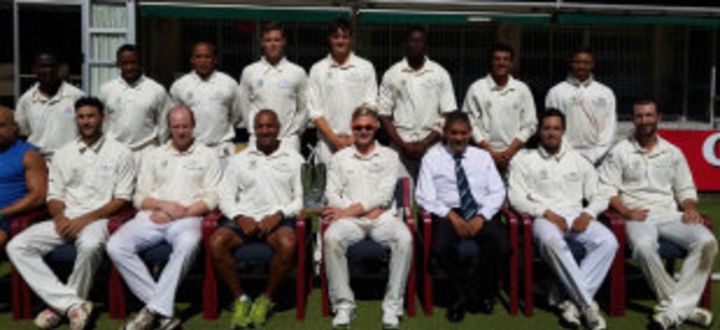CSA mulls provincial-cricket restructure to control costs
Cricket South Africa will consider restructuring its provincial, semi-professional competition, the second tier of its domestic cricket, when its board meets early next month

Cricket South Africa will consider restructuring its provincial, semi-professional competition - the second tier of its domestic cricket - when its board meets early next month. ESPNcricinfo understands the proposal on the table is based on fewer fixtures between the 14 affiliates but no reduction in the number of teams. This revamp is possibly a part of a cost-cutting measure in the aftermath of last summer's curtailed tour by the Indian team.
CSA is estimated to have lost out on earnings of around R300 million (US$30 million) from the shortened tour by India, which was cut from three Tests, seven ODIs and two T20s to two Tests and three ODIs. As a result of the shortfall, operations around South African cricket are being streamlined.
"The organisation has been forced to take a critical look at the business to see how it can be more efficient and save money in a difficult climate," said an insider in the know of developments. "At the same time, cutting costs must not be at the expense of cricket."
The second tier of domestic cricket, which operates as a feeder system for the six franchises, has been identified as a primary area for downsizing because it is seen as the only bloated segment of the domestic game. The provincial set-up consists of 14 teams who will likely be divided into groups based on their geographic position to reduce the number of matches they play. The most likely scenario is a two-way split with one coastal and one inland group but the pools could be sub-divided further.
Currently, all 14 provincial teams play against each other in a three-day league, which has first-class status. That amounts to 13 matches each for a team. One rung higher in the domestic game, the six franchises, who compete in a four-day first-class competition, operate under the same round-robin structure and only play 10 matches each.
"If we look at it, our semi-professional sides are playing more than our franchise teams, which just does not make sense," a second source said. "With that amount of matches, there is also the cost of umpires, venues, travel and accommodation so it would make sense to cut that down." CSA, however, did not respond to questions sent in by this reporter.
The semi-professional one-day and Twenty20 competitions have already seen that logic applied. The 45-over competition has teams playing just seven matches each while the 20-over event has been halved into inland and coastal groups, in which teams play six matches each before the final is contested between the top teams from each pool.
The administrators are also looking at a way to revamp the shortest format and are mulling an FA Cup-style T20 competition, which could be modelled on a knock-out structure. This would include all 14 affiliates and would take place over a set period of a couple of weeks. It could also see the franchise T20 tournament dissolved although the details of that are sketchy. Importantly, CSA will only look at a new T20 competition if it can find a sponsor.
Funding for the semi-professional competition has been difficult to secure, as it has faded into the background of franchise cricket. After a three-season sponsorship with South African Airways between 2005 and 2008, CSA has gone six seasons without a sponsor for the provincial tournaments. In last year's financial statements, the most recent ones available, CSA reported that it spent R52.7 million (US$5.2 million) on amateur cricket, which includes the semi-professional competition, that was initially dubbed amateur because cricketers taking part in it were not on contract.
At the start of the 2010-11 season, CSA announced that it was making provisions for seven amateur players per province to be contracted through a semi-professional structure which, it hoped, would keep players in the game for longer.
This is still in effect and the amounts earned by the semi-professional crickets are understood to be between R120,000 (US$12,000) to R170,000 (US$17,000) a year. Contracts have recently been renegotiated which has provided security that player number will not be cut for now, although that may change in the future.
The June 3 board meeting will also include ratification on the new Test captain following Graeme Smith's retirement in March. The national selectors will decide on a candidate, believed to be either AB de Villiers or Faf du Plessis, and the board will then approve their choice. South Africa's new leader will take his team to Sri Lanka in July for a two-Test series.
Firdose Moonda is ESPNcricinfo's South Africa correspondent
Read in App
Elevate your reading experience on ESPNcricinfo App.